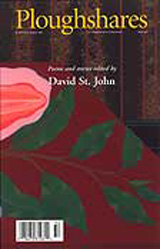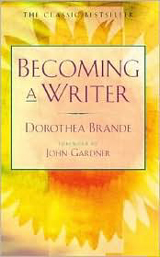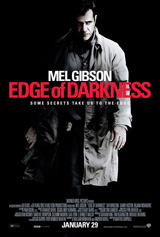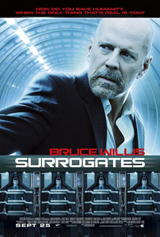Last week in this column, we discussed how to use commas when two independent clauses are joined by a conjunction. Well, dependent clauses sometimes need commas, too.
Dependent clauses, remember, look a lot like sentences in that they contain a subject, a verb, and often a direct object, but they can’t stand alone as complete sentences. When a dependent clause comes before the main clause in a sentence, it should be followed by a comma. The previous sentence itself is an example of what I’m talking about, but here’s another for good measure:
If it rains again today, Los Angeles will have seen a week of wet weather.
When a dependent clause comes after the main clause in a sentence, do not use a comma if it is restrictive—i.e., the main clause won’t make sense without it. This sentence, too, serves as an example—see how I’m doing that? (Let’s see if I can keep it up!)
Take an umbrella because it looks like it is going to rain again today.
Do use a comma, however, when a nonrestrictive dependent clause follows the main clause in a sentence—that is, if it contains supplementary or parenthetical information that is not essential to understanding the sentence. (Couldn’t do it with that one—I’d love to hear your suggestions!)
It could rain every day for the rest of the month, if you ask me.
Whether to use a comma when a dependent clause follows the main clause is sometimes a matter of judgment. When in doubt, use a comma to signal a pause.
Now for a scenario so bothersome to me that I wrote an entire post about it early in the early days of this blog. When a dependent clause is preceded by a coordinating conjunction so that two conjunctions end up next to each other—i.e., and if, but if, etc.—do not separate them with a comma if the dependent clause is restrictive:
The clouds are supposed to clear by the weekend, and if the weather report is right, we will go to the zoo on Saturday.
For a much more detailed exploration of this topic, check out my previous post.
Do you have a question about the comma? Let me know, and I’ll include it in a future installment of Mots Justes’ ongoing series.
The Mots Justes Series on Commas
Part I—To Serialize or Not to Serialize
Resources
Chicago Manual of Style, The. 15th ed. Chicago: The University of Chicago Press, 2003.
Hacker, Diana, The Bedford Handbook for Writers, 3rd ed. Boston: St. Martin’s Press: 1991.








I very rarely find a point of grammar or punctuation that i didn’t know already, but this is one i needed clarifying. Ah – that comma’s an interloper, isn’t it? But for me style usually wins against correctness.
Btw a superfluous ‘>’ makes a dead link of your reference to the previous post. In that situation, i tend to bracket-comma and leave out the comma before the conjunction. What’s your view of that?
I was interested in your claim last week that a comma ought to separate two independent clauses joined by a conjunction. That’s the opposite of what i’ve always been taught and i wonder if it’s a US/British thing. (You often hear people saying ‘and’ should never be preceded by a comma, presumably having been badly taught this rule.)
Hm.
Hi Mand, Thanks for visiting! The broken links are fixed now, thanks to you.
Yes, the disparity in our views might be a U.S./British thing, like where to put periods and commas—inside or outside quotation marks. (For us, it’s always inside, even when it’s not grammatically correct.) Here, a conjunction alone isn’t enough to join two independent clauses. To avoid a run-on, you need a period, semicolon, or comma and conjunction:
Mand left a comment on my blog. I was pleased to read her thoughts.
or
Mand left a comment on my blog; I was pleased to read her thoughts.
or
Mand left a comment on my blog, and I was pleased to read her thoughts.
but NOT
Mand left a comment on my blog and I was pleased to read her thoughts
or
Mand left a comment on my blog, I was pleased to read her thoughts
I’d be interested to hear others’ take on the U.S./U.K. dichotomy.
Thanks again! -ae
Sorry for making you wait, Annlee, especially after you replied so soon to my comment.
I’m always fascinated by Brit/US differences; in my youth it all used to annoy me in a British-English-is-the-proper-kind way ;0) but someone pointed out that gotten is more Old English than got, so i converted to looking at them as ‘equal’ dialects. (The other opinion is a very long time ago, lest you think i’m still a dialect snob.)
The first two examples you give in your comment tally with what i was taught, but:
Annlee furthered my thinking, and i enjoyed it.
would be wrong and ‘ought’ to be:
Annlee furthered my thinking and i enjoyed it.
You’ll have noticed i used a comma in my The first two examples sentence – which was stylistic, and to preserve clarity, cos the first clause was rather long. (And those commas are being parenthetical.)
From comments on Daily Writing Tips and elsewhere, i get the feeling grammar is taught in more detail in the USA than here. Based on my 70s and 80s education, that is.
Another US/UK question i’ve wondered about is the use of that. I often read in how-to writing articles that it’s best to avoid it in a sentence such as:
Mots Justes is a blog i love.
Yet US writers seem to have been told to use it whenever it can be used:
Mots Justes is a blog that i love.
That reads as clumsy, to my ear, and i’d only keep that if the sentence would be confusing without it. Say:
Mots Justes tells us lucidly and in a friendly tone that punctuation matters.
Are US schoolchildren really taught to use it everywhere possible?
Hm … Yes, “Mots Justes is a blog that I love” (thanks, by the way!) probably is technically correct, but I wouldn’t change “Mots Justes is a blog I love.” I believe we’ve hit on a subject for a future post! Thanks again for your comments! -ae